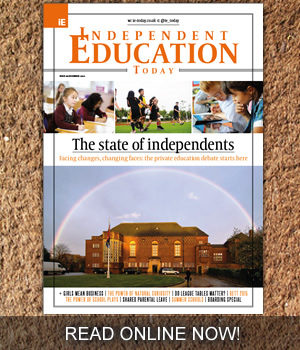Modern children start becoming independent at the tender age of 10, a study has revealed. A study of 2,000 parents with kids aged between 8 and 12 revealed that when children reach double figures it signals the first steps towards independence. The poll, commissioned by antivirus and mobile security company BullGuard, discovered that the majority of parents let their kids own a mobile phone, pierce their ears and get a TV in their bedroom at the age of 10.Getting an iPad, choosing their own clothes and making their own breakfast are also luxuries the typical 10-year-old can enjoy. But catching a bus alone, being allowed to wear make-up and getting an email account comes at the more mature age of 11, the survey found.
More than half of the mums and dads polled have specific age deadlines in mind for a number of life’s landmarks. And many of these milestones are significantly different to what they encountered when they were young.The polled parents said 70 per cent of children aged 12 or under are now ‘Googling’ things unsupervised. 80 per cent said their kids were growing up too quickly, with 77 per cent feeling that the vast array of content they can access online was to blame. This accelerated maturity is due to peer pressure, the internet and social networking sites, according to eight out of 10 parents.
Nedko Ivanov, BullGuard’s CEO and also a parent, said: “Children display different levels of maturity and as a rule you can’t always say every child is ready to do this or that by a certain age.All parents will question whether their children are ready to attend a sleepover or catch a bus, but in today’s digital age the use of different types of technology is also something to consider. For instance, knowing when to let children have access to smartphones, tablets and laptops can be a real dilemma.
“Most kids will pester their parents and demand the latest gadgets, but it’s important to also take into account whether or not they’re ready for what they might encounter and if they do start using this sort of technology, to make sure they are safe online.”
Four in 10 parents felt pressured to buy their kids the latest gadgets while half let their children use the internet unsupervised and download apps at the age of 10. On average, 50 per cent of parents would also be comfortable with a child having a Facebook account by the age of 12.
Intriguingly, but perhaps not too surprising, the study also revealed that 40 per cent of mums and dads said it annoys them that celebrities and friends have more influence over their children than they do. More than one in three parents acknowledge that their child is obsessed with fitting in and nearly half of parents say they do all they can to ensure this is possible.
Given this, it’s all the more important to ensure that a safe and secure environment is available for children to explore. This may be a daunting prospect for parents who don’t feel like they have a grip on the online world. Fifty-three per cent say their kids are more tech-savvy than they are, so it’s important to know where to turn to for help.
Tony Neate, CEO of Get Safe Online, commented: “Children of today are part of a digital generation, they just do not know any different than to use technology and the internet. However, whilst it may be second nature, it’s important that young people understand the risks and the boundaries they should observe. Part of this is about trust and education. Like learning to ride a bike, or crossing the road, the most effective way to educate children is to start early and empower them to take responsibility for their own safety. For many parents this means educating themselves too so they can feel confident talking to their children about online behaviour and safety.
“There are also other practical things parents can do, for their own peace of mind as well as to help set boundaries such as installing parental controls on computers, mobiles and games consoles, privacy features on social networking sites, and the safety options on Google and other search engines.”
When asked if it would ease their mind if parental controls were installed on devices connected to the internet, 84 per cent said that this would at least offer reassurance, with a third saying it would considerably ease their anxieties.
Nedko Ivanov added: “The research shows young children’s grasp of technology is overtaking their parents. While many are pleased that their children are adept with technology and can see the long-term benefits, it can be disconcerting to have an eight-year-old who knows their way around a laptop or smartphone better than you do. This is why it is so critical that parents are aware of what their children are doing online.
“When parents can’t be there, an effective security suite with strong parental controls can provide insight into a child’s activity and help parents to protect their children should they encounter things that are unsavoury and inappropriate.”
www.bullguard.com












